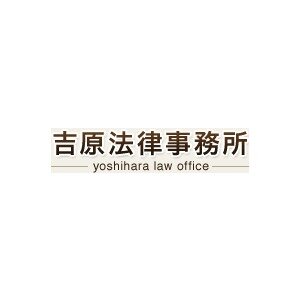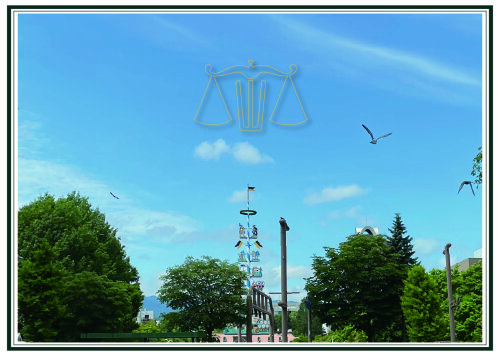Best Accidents & Injuries Lawyers in Sapporo
Share your needs with us, get contacted by law firms.
Free. Takes 2 min.
List of the best lawyers in Sapporo, Japan
About Accidents & Injuries Law in Sapporo, Japan
The field of Accidents & Injuries law in Sapporo, Japan, primarily deals with legal cases involving personal injuries resulting from accidents. These can occur in various contexts such as road traffic incidents, workplace accidents, and slip and fall injuries at public or private properties. Japanese law aims to provide a framework for determining fault, compensating victims, and ensuring fair treatment. Although Sapporo follows national legislation, some local nuances might apply, particularly in traffic management and public safety regulations.
Why You May Need a Lawyer
Hiring a lawyer specializing in Accidents & Injuries in Sapporo can be crucial for several reasons. Firstly, an attorney can help navigate the complexities of Japanese tort law to establish fault and liability. Victims may require legal assistance to negotiate with insurance companies or contest unjust settlements. Additionally, a lawyer can be instrumental in court proceedings if a case escalates, ensuring that your rights are protected and potentially increasing the compensation you receive. Furthermore, legal professionals can provide valuable guidance on documenting evidence and handling claims effectively to avoid unnecessary delays or pitfalls.
Local Laws Overview
In Sapporo, accidents and injuries are governed under the broader framework of Japan's Civil Code, Road Traffic Act, and the Industrial Safety and Health Act. Key legal aspects include:
- Fault Determination: Understanding how liability is assessed is crucial, as Japan typically follows the principle of comparative negligence.
- Compensation Limits: There are specific guidelines on how compensation is calculated, considering factors like medical expenses, lost earnings, and pain and suffering.
- Insurance Requirements: Drivers and businesses in Sapporo are required to carry certain levels of insurance to cover liability in case of an accident.
- Statute of Limitations: There is a time limit within which a victim must file a claim, typically three years from the date of the accident.
Frequently Asked Questions
What should I do immediately after an accident in Sapporo?
Seek medical attention for any injuries, report the accident to the police, and notify your insurance company. Collect evidence like photos and witness details if possible.
Am I required to report all accidents to the police?
Yes, it is mandatory to report most accidents, particularly if there is bodily injury or significant property damage.
How is compensation for injuries typically calculated?
Compensation considers various factors including medical costs, lost income, and the degree of pain and suffering. Legal advice is recommended for accurate calculation.
Can I claim for an accident if it was partially my fault?
Yes, Japan uses comparative negligence. Your compensation may be reduced by your percentage of fault, but you can still claim.
What role does insurance play in an accident case?
Insurance is crucial for covering damages and compensating victims. Ensuring you have adequate coverage is important.
How long does the process of claiming compensation usually take?
This can vary widely, from a few months to several years, depending on the complexity of the case and whether it is settled out of court or litigated.
What if the responsible party doesn’t have insurance?
You may still pursue a claim against them personally, but recovering full compensation can be challenging. Legal advice is recommended in such cases.
Do I need to attend court to settle my accident claim?
Not necessarily. Many claims are settled through negotiations. However, if an agreement can't be reached, court proceedings may be necessary.
Is there legal aid available for accident and injury cases?
Yes, legal aid services are available, especially if you cannot afford a private lawyer. It is advisable to explore these options early in your case.
What if I am injured during a work-related task?
Workplace accidents are covered under the Industrial Safety and Health Act and may also involve workers' compensation insurance.
Additional Resources
There are numerous resources and organizations that can assist you with accidents and injuries in Sapporo:
- Local Bar Association: To find legal representation and advice.
- Sapporo Police Department: For reporting accidents and obtaining accident reports.
- Japan Legal Support Center (Houterasu): Provides information and assistance for legal issues.
- Insurance Companies: For claims and policy information.
Next Steps
If you find yourself in need of legal assistance following an accident in Sapporo, consider the following steps:
- Contact a qualified legal professional specializing in accidents and injuries.
- Gather and organize all relevant evidence, including medical reports and witness statements.
- Consult with your insurance provider to understand your coverage and claim process.
- Hope you find support from local agencies or legal aid if financial constraints are a concern.
- Stay informed and proactive about your legal rights and responsibilities throughout the process.
Lawzana helps you find the best lawyers and law firms in Sapporo through a curated and pre-screened list of qualified legal professionals. Our platform offers rankings and detailed profiles of attorneys and law firms, allowing you to compare based on practice areas, including Accidents & Injuries, experience, and client feedback.
Each profile includes a description of the firm's areas of practice, client reviews, team members and partners, year of establishment, spoken languages, office locations, contact information, social media presence, and any published articles or resources. Most firms on our platform speak English and are experienced in both local and international legal matters.
Get a quote from top-rated law firms in Sapporo, Japan — quickly, securely, and without unnecessary hassle.
Disclaimer:
The information provided on this page is for general informational purposes only and does not constitute legal advice. While we strive to ensure the accuracy and relevance of the content, legal information may change over time, and interpretations of the law can vary. You should always consult with a qualified legal professional for advice specific to your situation.
We disclaim all liability for actions taken or not taken based on the content of this page. If you believe any information is incorrect or outdated, please contact us, and we will review and update it where appropriate.
Browse accidents & injuries law firms by service in Sapporo, Japan
Sapporo, Japan Attorneys in related practice areas.










